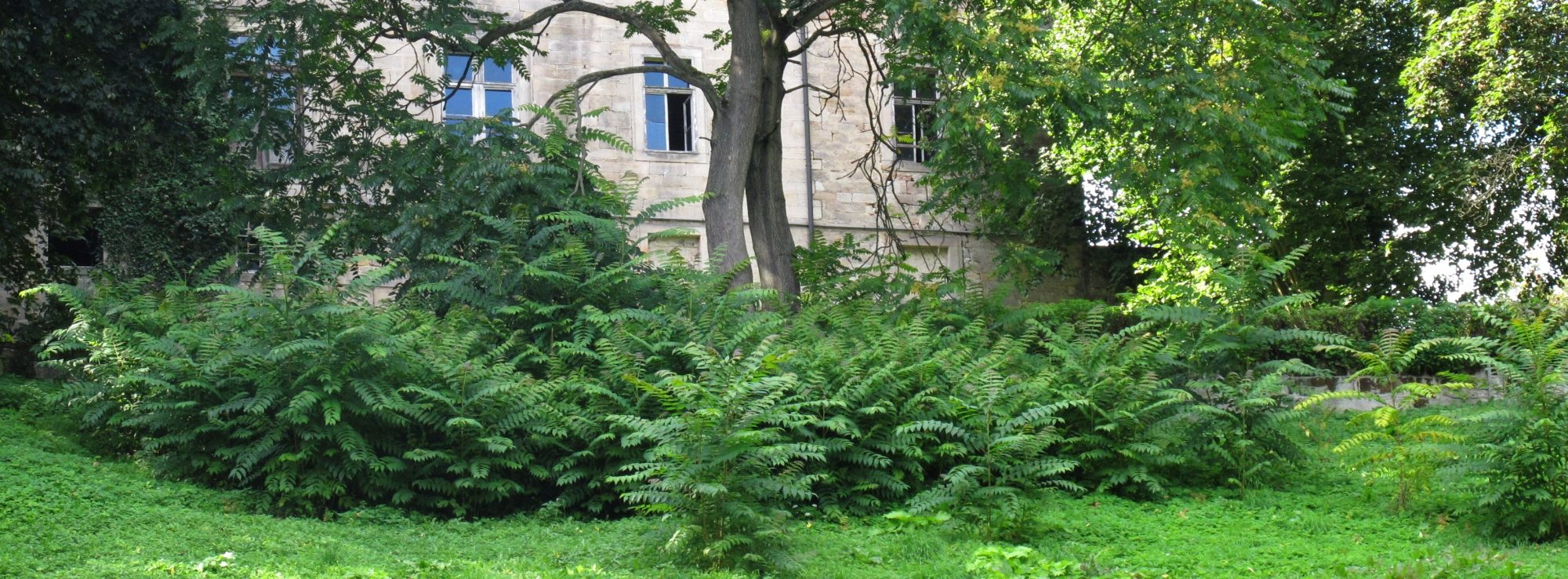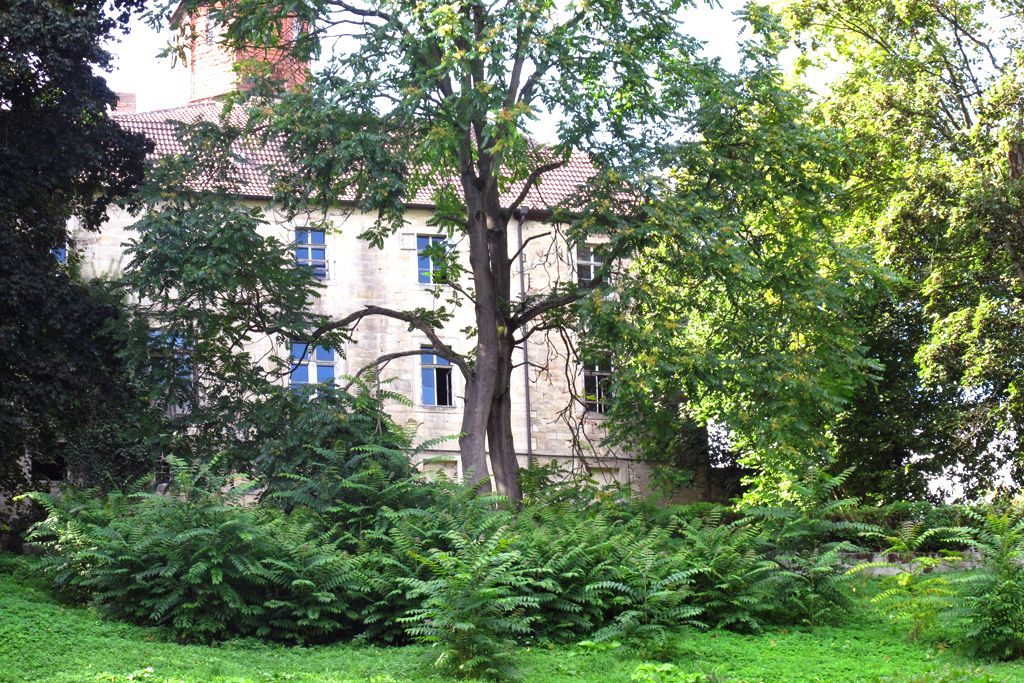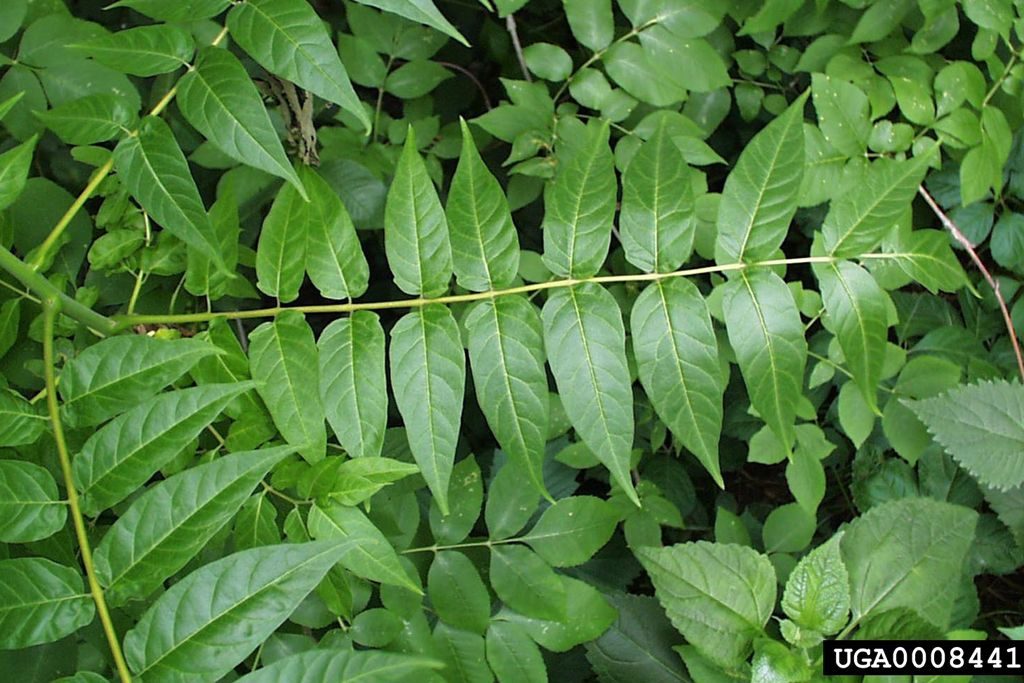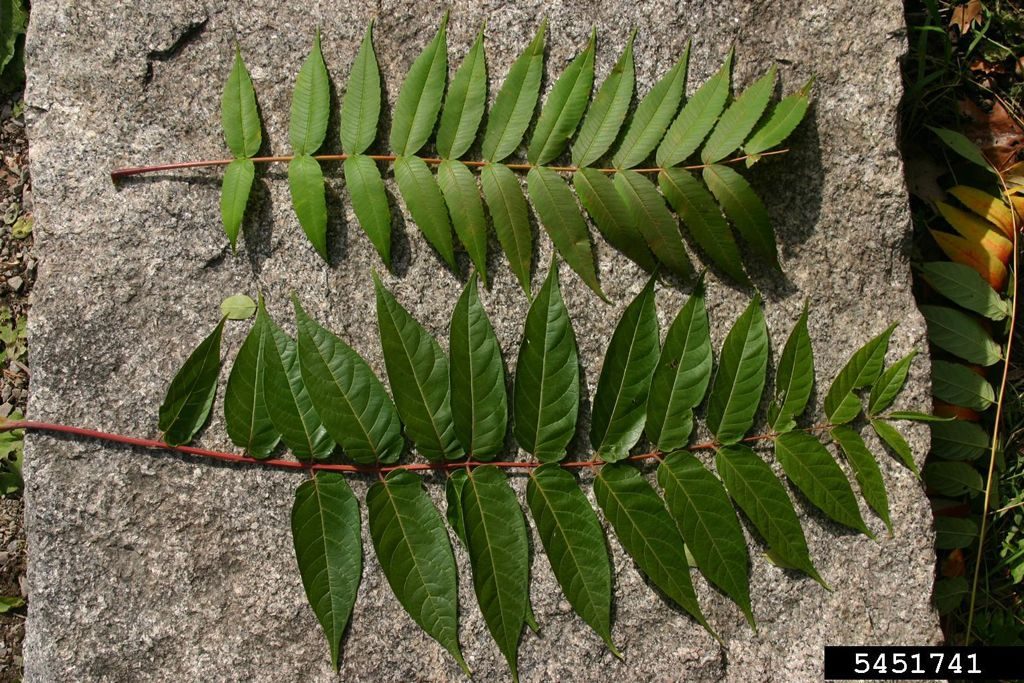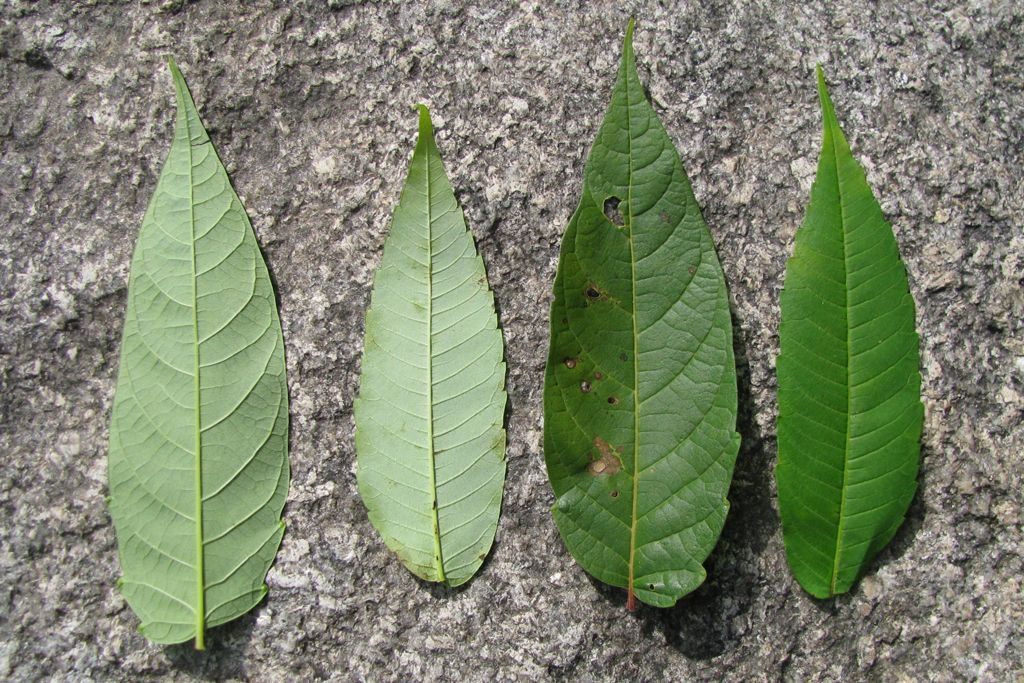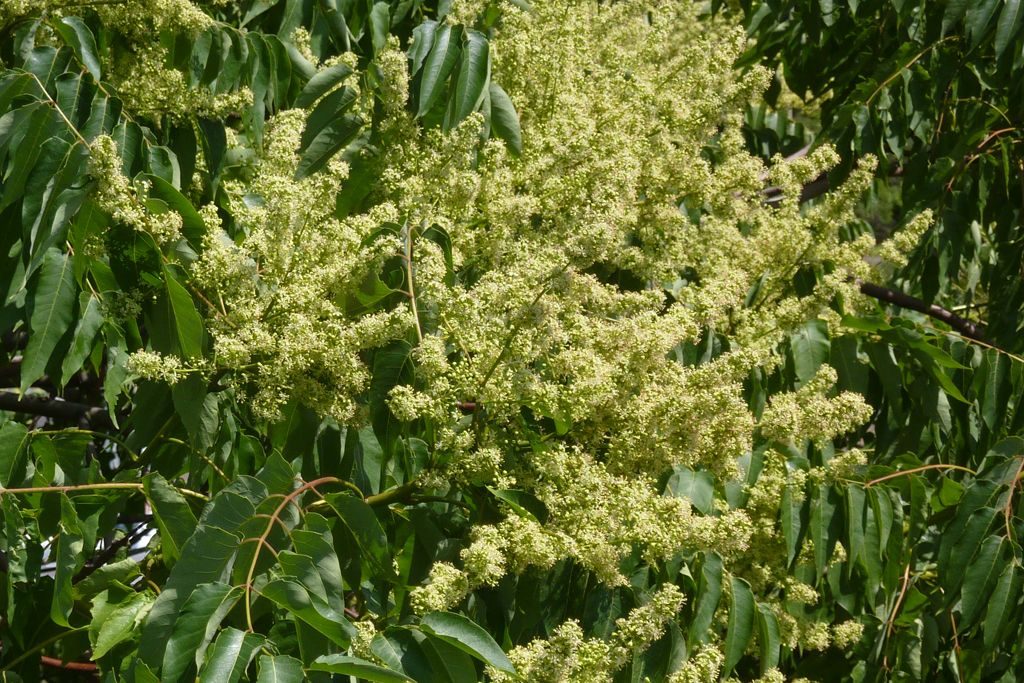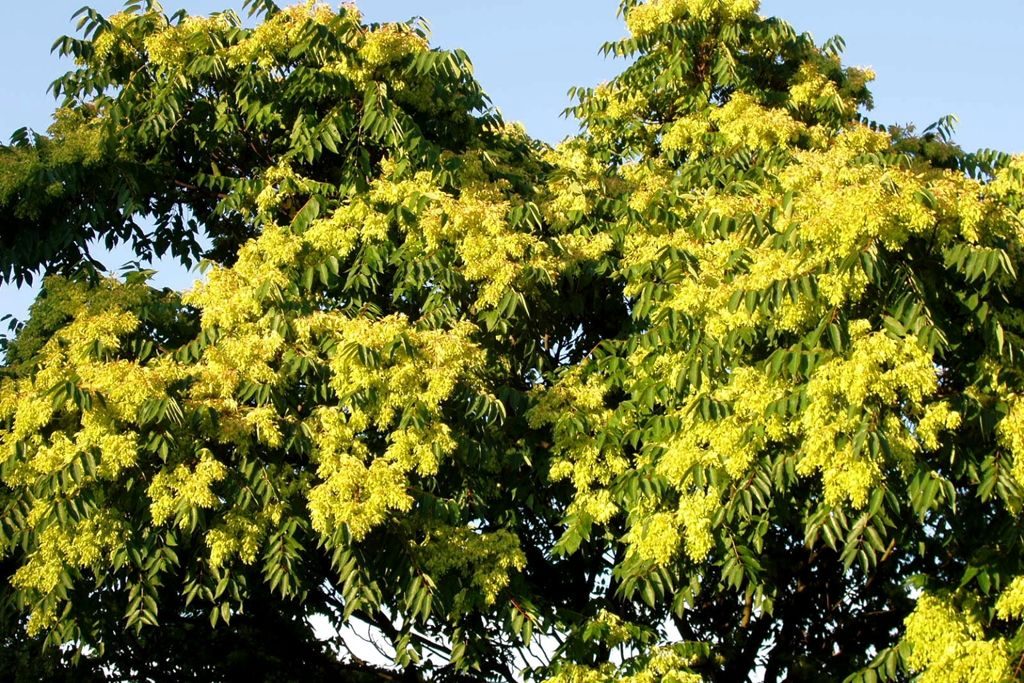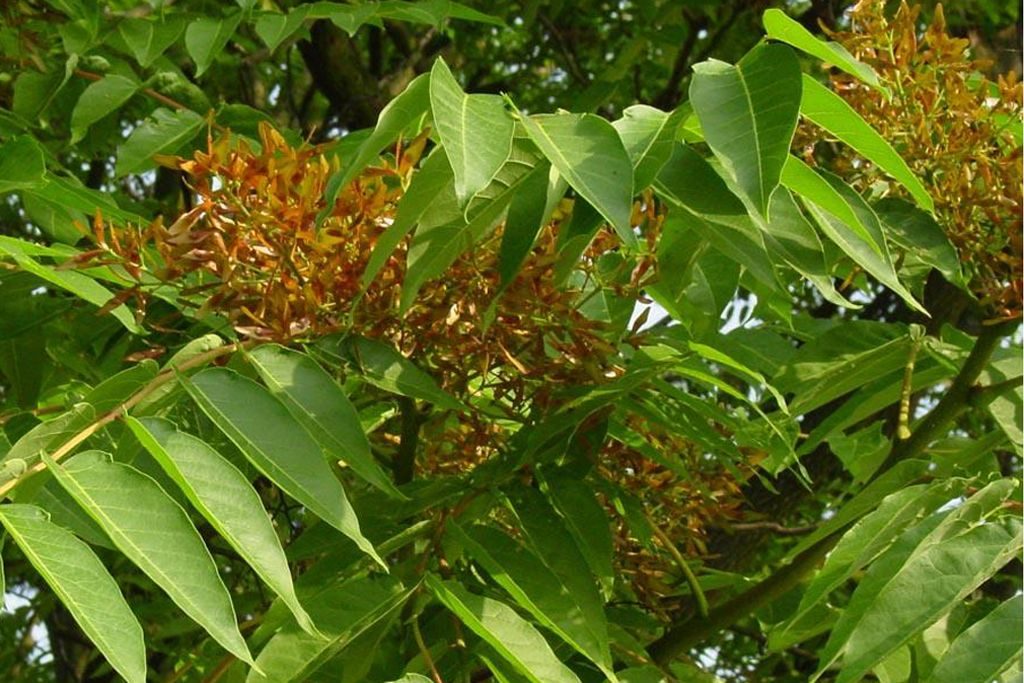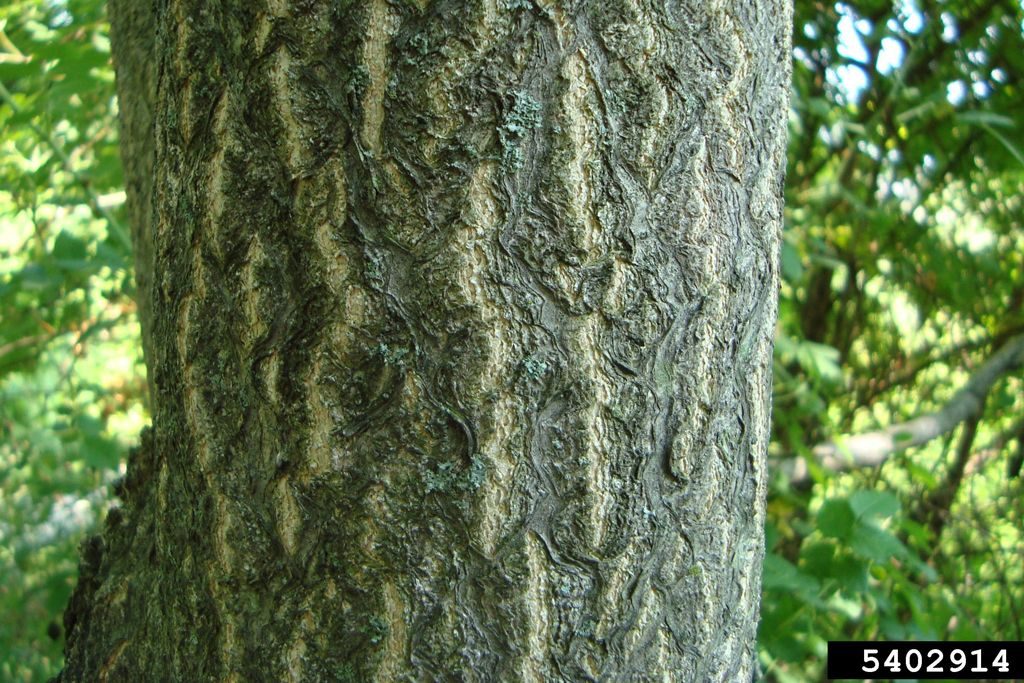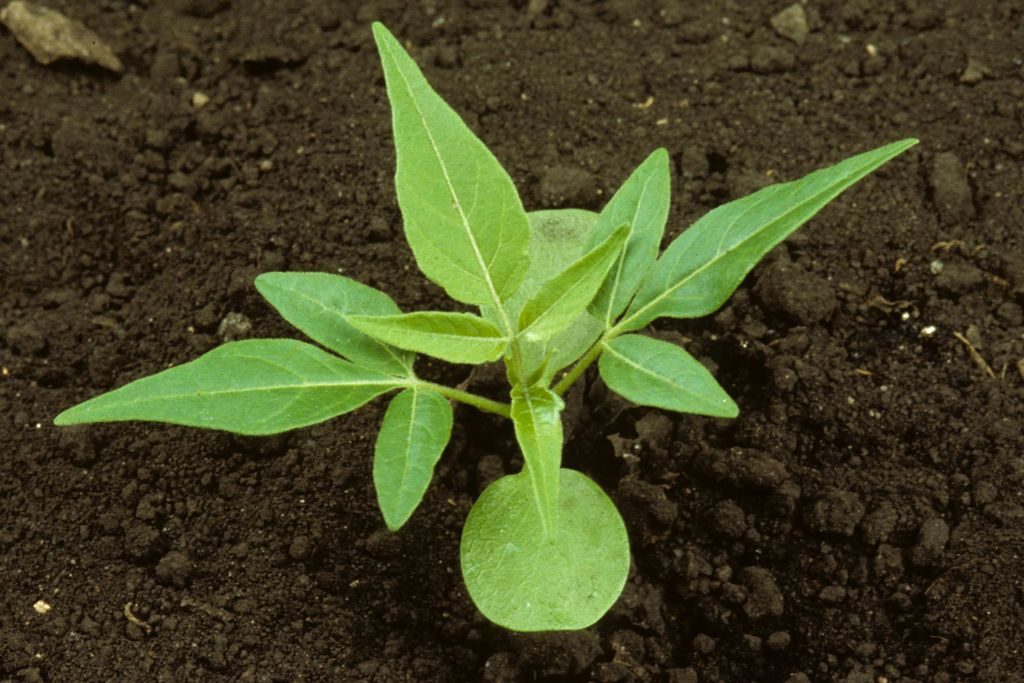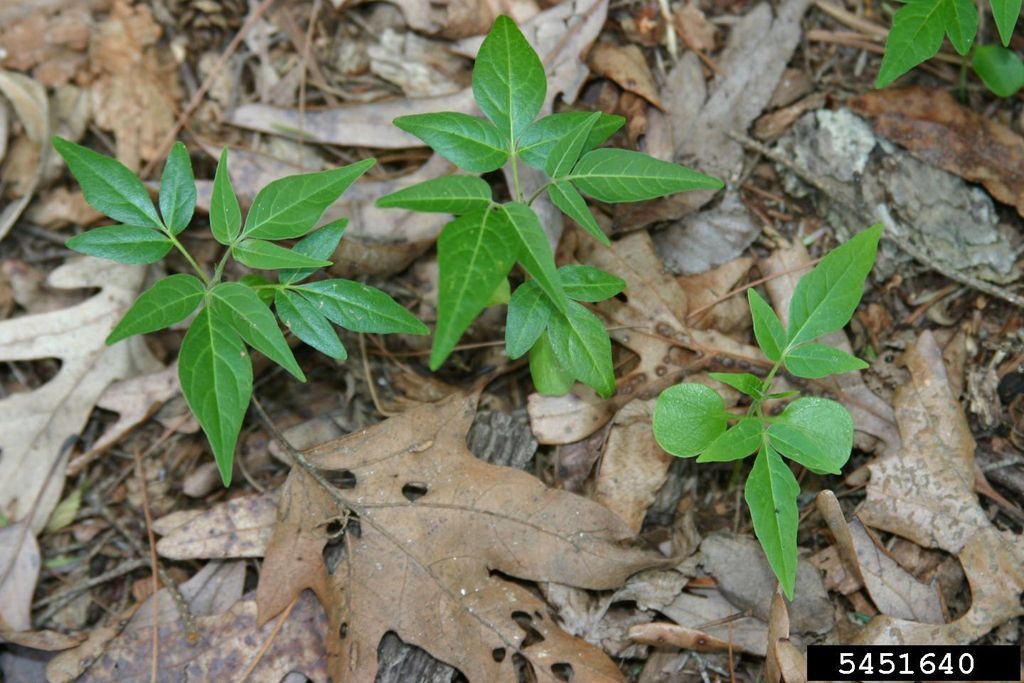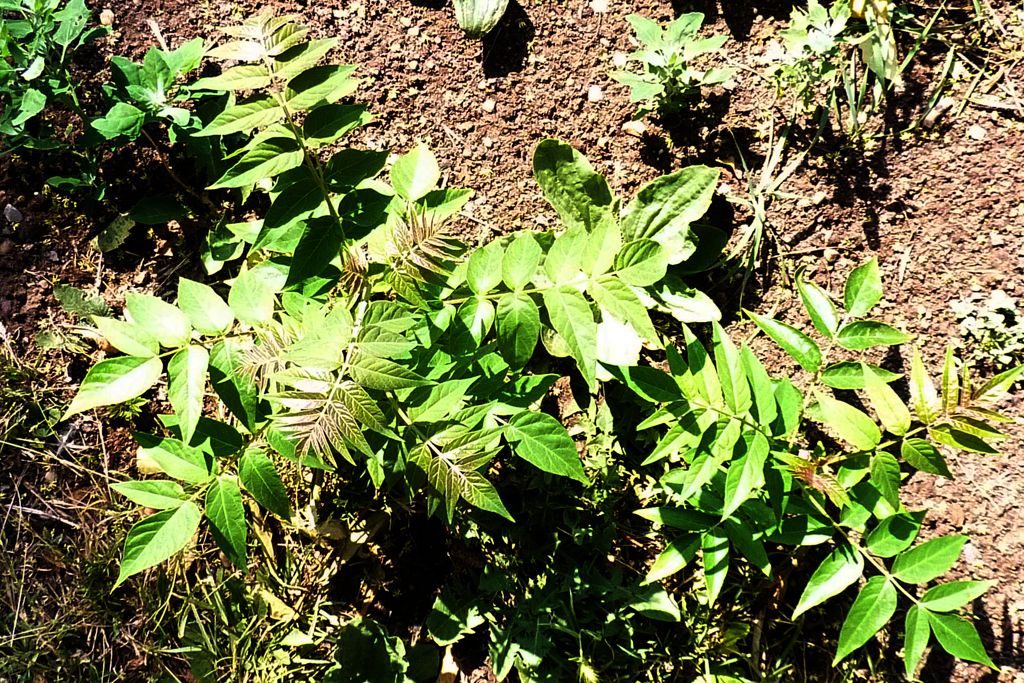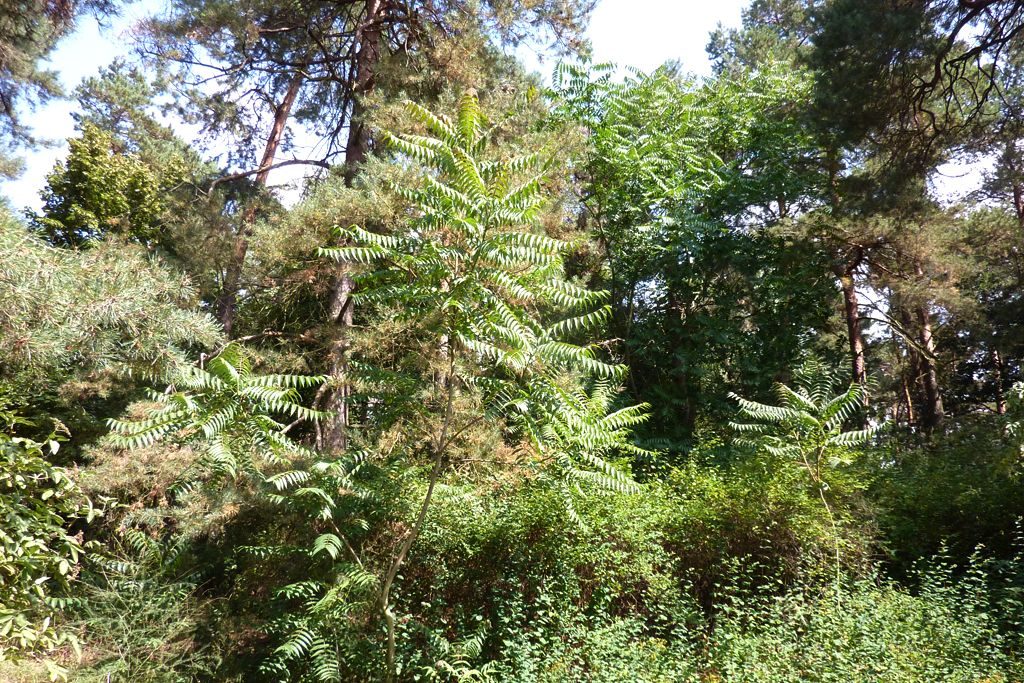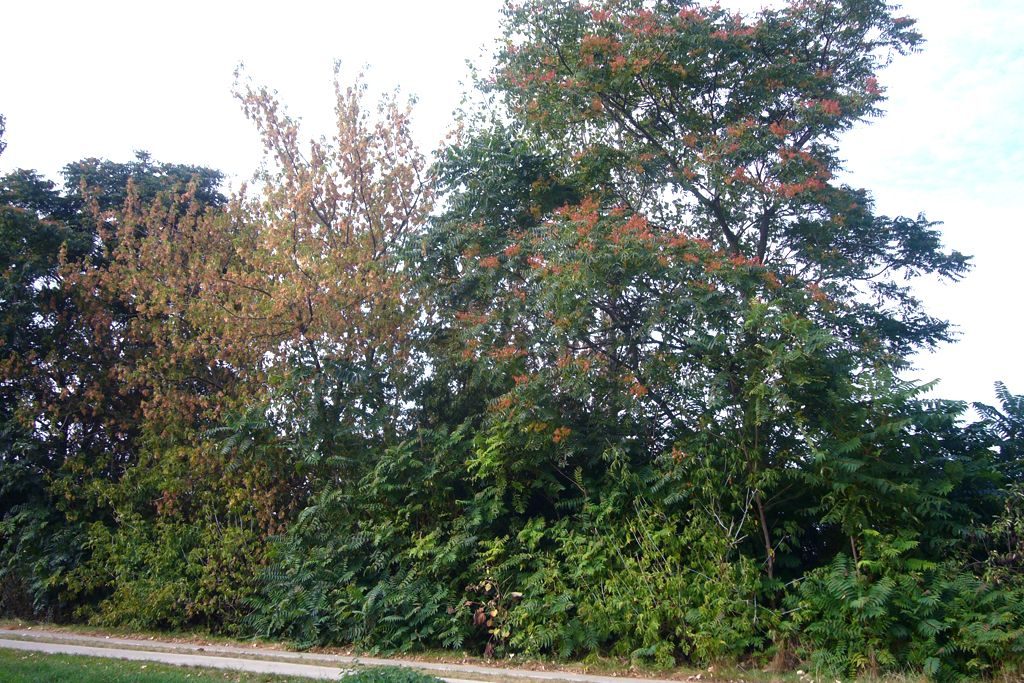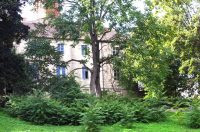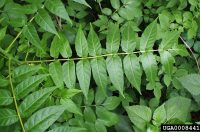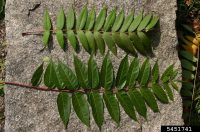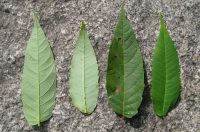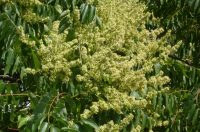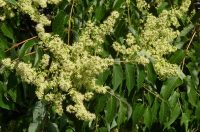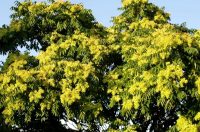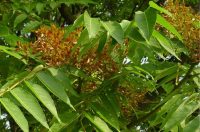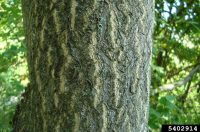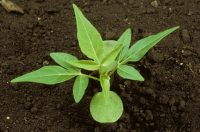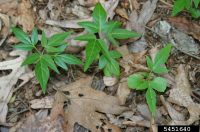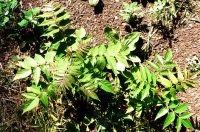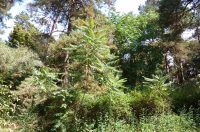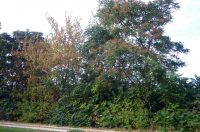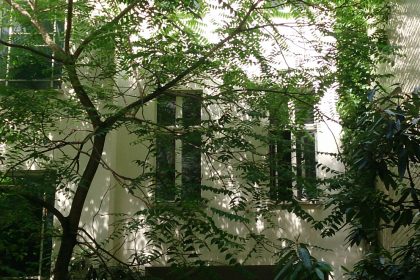AGIN (2014): Bekämpfungsempfehlung Götterbaum (Ailanthus altissima). AGIN Arbeitsgruppe invasive Neobiota. 2 S. M >>
AKATOV, V. V., T. V. AKATOVA & A. E. SHADZHEA (2012): Species Richness of Tree and Shrub Layers in Riparian Forests of the Western Caucasus Dominated by Alien Species. – Russian Journal of Ecology, 2012, Vol. 43 , No. 4, : S. 294-301. W >>
NEU! ARBEITSGRUPPE „VOLLZUG DER VERORDNUNG (EU) NR. 1143/2014“ (2020): Götterbaum – Management- und Maßnahmenblatt zu VO (EU) Nr. 1143/2014. Stand Juni 2020. LANA. 4 S. M >>
BAFU (2016): Leitfaden zum Umgang mit dem Götterbaum (Ailanthus altissima). Bundesamt für Umwelt. 17 S. A M >>
BRADE, P. (2018): Maßnahmetests gegen ausgewählte invasive Neophyten im Rahmen des KORINA-Projektes “Umsetzung des Aktionsprogrammes invasive Neophyten in Schutzgebieten Sachsen-Anhalts“. Teil I.1.1 Götterbaum (Ailanthus altissima). 6 S. M >>
BRUNDU, G. (2017): Information on measures and related costs in relation to species considered forinclusionon the Union list: Ailanthus altissima. Technical note prepared by IUCN for the European Commission. IUCN. 33 S. M >>
CABI (2019): Ailanthus altissima (tree-of-heaven). Datasheet Invasive Species Compendium. Stand: 3.2.2021 A M V W >>
CSISZÁR, Á. (2009): Allelopathic Effects of Invasive Woody Plant Species in Hungary -Acta Silv. Lign. Hung. 5, 9-17. W >>
CSISZÁR, Á. & KORDA, M. (2017): Summary of invasive plant control experiments. In: Practical experiences in invasive alien plant control. 2nd revised and expanded edition. Rosalia Handbooks. Duna–Ipoly National Park Directorate, Budapest (Hrsg. Á. Csiszár and M. Korda), S. 207-244. M >>
EEA (2012): The impacts of invasive alien species in Europe. Technical report No 16/2012. European Environment Agency. 118 S. W >>
INFOFLORA (2012): Götterbaum – Ailanthus altissima (Mill.) Swingle. Invasive Neophyten: Bedrohung für Natur, Gesundheit und Wirtschaft. 3 S. A B G M Ö V W pdf
JÖRG, E. (2017): Mechanische Bekämpfung des Götterbaumes im TWW-Objekt 5090 Referenz-Nr. REF-1011-03500. Schlussbericht. Amt für Landwirtschaft und Natur des Kantons Bern Abteilung Naturförderung. 9 S. M >>
HALMSCHLÄGER, E., MASCHEK, O. (2018): Sustainable control of Ailanthus altissima using the bioherbicide “Ailantex”. Präsentation. 19 S. M >>
KLEINBAUER, I., S. DULLINGER, F. KLINGENSTEIN, R. MAY, S. NEHRING et al. (2010): Ausbreitungspotenzial ausgewählter neophytischer Gefäßpflanzen unter Klimawandel in Deutschland und Österreich BfN-Skripten 275. 76 S. V pdf 10 MB
KOCSIS, G. I. (2017): Tree of heaven control on sandy areas of the Little Hungarian Plain. In: Practical experiences in invasive alien plant control. 2nd revised and expanded edition. Rosalia Handbooks. Duna–Ipoly National Park Directorate, Budapest (Hrsg. Á. Csiszár and M. Korda), S. 95-101. M >>
KOWARIK, I. & I. SÄUMEL (2007): Biological flora of Central Europe: Ailanthus altissima (Mill.) Swingle. Perspectives in Plant Ecology, Evolution and Systematics 8, 4: S. 207-237. A M V W >>
LEZCANO CÁCERES, H. L. (2010): Ecological characteristics and economic impact of non native Ailanthus altissima (Mill.) Swingle in Hesse, Germany. Dissertation Uni Göttingen. 167 S. A M V W >>
LIFE ALTA MURGIA PROJEKT (2014): Guidelines for Ailanthus control. 2 S. M >> 0,8 MB
MASCHEK, O., HALMSCHLAGER, E. (2018): Effects of Verticillium nonalfalfae on Ailanthus altissima and associated indigenous and invasive tree species in eastern Austria. European Journal of Forest Research 137(2) S: 197-209. M >>
MEDINA-VILLAR, S., S. RODRÍGUEZ-ECHEVERRÍA, P. LORENZO, A. ALONSO & E. PÉREZ-CORONA (2016): Impacts of the alien trees Ailanthus altissima (Mill.) Swingle and Robinia pseudoacacia L. on soil nutrients and microbial communities. – Soil Biology and Biochemistry 96, 65-73. W >>
MONTECCHIARI, S., TESEI, G. & ALLEGREZZA, M. (2020): Ailanthus altissima Forests Determine a Shift in Herbaceous Layer Richness: A Paired Comparison with Hardwood Native Forests in Sub-Mediterranean Europe Plants 9(10), W >>
MÜLLER, U., FREUDENTHALER, M., OBERNOSTERER, D. et al. (2015): Materialeigenschaften und Nutzungspotential des Götterbaums. Endbericht für das Forschungsprojekt Nr. 100995. Institut für Holztechnologie und Nachwachsende Rohstoffe, Department für Materialwissenschaften und Prozesstechnik, Universität für Bodenkultur Wien. 48 S. A >>
NEHRING, S., I. KOWARIK, W. RABITSCH & F. ESSL (2013): Naturschutzfachliche Invasivitätsbewertungen für in Deutschland wild lebende gebietsfremde Gefäßpflanzen. BfN Skripten 352. Bundesamt für Naturschutz. 204 S. W >>
ÖWAV (2016): Götterbaum. ÖWAV-Steckbriefe „Neophyten“. Österreichischer Wasser- und Abfallwirtschaftsverband. 2 S. A B M W >>
OITZINGER, G., K. ZSAK, T. KNOLL & R. HILLERBRAND (2015): Endbericht zum Projekt Management invasiver Neophyten im Nationalpark Donau-Auen. Berichtszeitraum: 15.10.2012 – 20.12.2014. ARGE NeoPhyten. 56 S. M pdf
SIEGRIST, M., HOLDENRIEDER, O. (2016): Die Verticillium-Welke – eine Option zur Bekämpfung des Götterbaumes in der Schweiz? Schweiz Z Forstwes 167 S: 249–257. M >>
SLADONJA, B., SUŠEK, M., GUILLERMIC, J. (2015): Review on Invasive Tree of Heaven (Ailanthus altissima (Mill.) Swingle) Conflicting Values: Assessment of Its Ecosystem Services and Potential Biological Threat. Environmental Management 56(4) A G W >>
SLADONJA, B., POLJUHA, D. (2018): Citizen Science as a Tool in Biological Recording—A Case Study of Ailanthus altissima (Mill.) Swingle. forests 9(1) V >>
STACHL, M. (2018): Naturschutz: Wien bekämpft den Götterbaum. kurier.at. M >>
STEIN, A. (2019): Plage oder Zukunftsbaum? Bis zu vier Meter im Jahr: Götterbaum verbreitet sich rasant. Mitteldeutsche Zeitung. 26.09.2019. A W >>
SZIDONYA, I. (2017): Control of tree of heaven in the Mecsek Park Forest. In: Practical experiences in invasive alien plant control. 2nd revised and expanded edition. Rosalia Handbooks. Duna–Ipoly National Park Directorate, Budapest (Hrsg. Á. Csiszár and M. Korda), S. 141. M >>
SZŰTS, F. B. (2017): Tree of heaven control in the area of Alsó-hegy in Tornanádaska. In: Practical experiences in invasive alien plant control. 2nd revised and expanded edition. Rosalia Handbooks. Duna–Ipoly National Park Directorate, Budapest (Hrsg. Á. Csiszár and M. Korda), S. 61-63. M >>
NEU! TIEBE, M., FÜRST, C. & PARTZSCH, M. (2019): Das Vorkommen von sieben ausgewählten Neophyten in der Stadt Halle (Saale) Hercynia N. F. 52, S. 43-80. M >>
TIEFENBACHER, A. (2013): Götterbaum (Ailanthus altissima) in der Unteren Lobau. Endbericht des Götterbaum-Monitorings im Bereich der Unteren Lobau in den Jahren 2003 bis 2005. . Wissenschaftliche Reihe Nationalpark Donauauen Heft 24. 88 S. M >>
TÓTH, M. (2017): Tree of heaven in the Fóti-Somlyó Nature Conservation Area – a brief history of a successful treatment procedure. In: Practical experiences in invasive alien plant control. 2nd revised and expanded edition. Rosalia Handbooks. Duna–Ipoly National Park Directorate, Budapest (Hrsg. Á. Csiszár and M. Korda), S. 165-170. M >>
UMSICHT- AGENTUR FÜR UMWELT & KOMMUNIKATION (2018): Praxishilfe Neophyten – Problempflanzen erkennen und richtig handeln. Kantone Uri, Schwyz, Nidwalden, Obwalden, Luzern und Zug,. 45 S. A B M >>
UMWELTBUNDESAMT (2019): Ailanthus altissima – Götterbaum. neobiota-austria.at. (abgerufen am 21.04.2020). A M W >>
VOR, T., H. SPELLMANN, A. BOLTE & C. AMMER (2015): Potenziale und Risiken eingeführter Baumarten: Baumartenportraits mit naturschutzfachlicher Bewertung. 233 S. W >>
WUNDER, J. et al. (2018): Götterbaum und Paulownie: die «neuen Wilden» im Schweizer Wald? Schweiz Z Forstwes 169(2), S. 69-76. A W M >>

